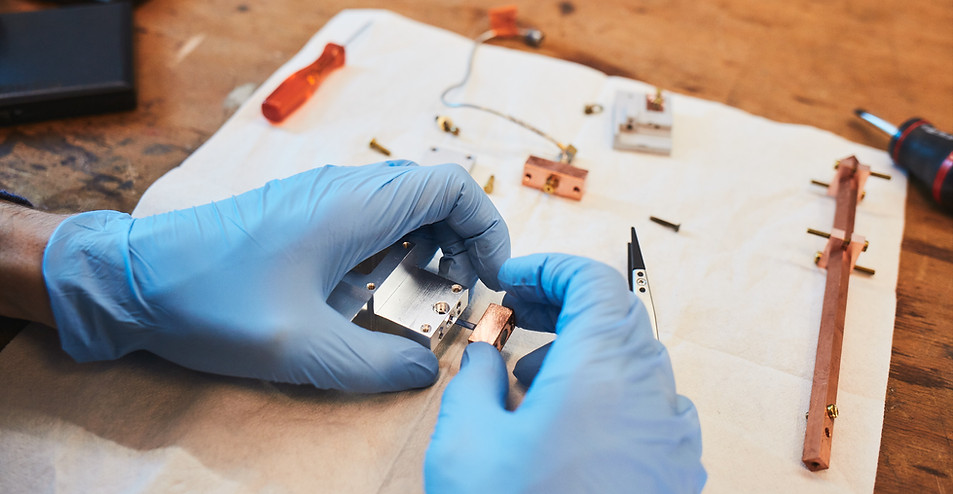
Robust Superconducting and hybrid Quantum bits
Latest News:
Introducing Supriya Mandal to the team
One of the major challenges in scalable quantum computation is achieving quantum error correction (QEC) in a logical qubit made with a limited number of physical qubits. I am looking into using bit-flip protection, large anharmonicity, and tunable interaction matrix elements in fluxonium qubits, combined with additional on-chip microwave components, to demonstrate a logical qubit towards QEC. This will enable reducing the technical overhead in scaling quantum computing architecture with superconducting qubits.


Superconducting circuit enabling the manipulation of a Schrödinger cat qubit
@N.Hoppenot/ENS Lyon
ABOUT
The RobustSuperQ project aims at accelerating French R&D on superconducting and hybrid qubits protected by construction against decoherence. It is part of a post-transmon strategy, alternative to surface code, in which the French teams are at the forefront. It brings together all of these teams around three complementary concepts: the Cat-code architecture, spin qubits implanted on superconducting circuits, and topologically protected superconducting qubits.
RobustSuperQ is a target project of the PEPR Quantum Technologies (priority programme for research & equipment),
part of the French National Quantum Strategy
WHAT WE DO

Assembling a superconducting circuit in cavity
@N.Hoppenot/ENS Lyon
We accelerate the French R&D on robust superconducting and hybrid qubits protected against decoherence. The project is organized into work packages (WP)
- WP0: Bricks of components and methods for WP1, 2 and 3.
- WP1: Cat-qubits encoding information in quantum superpositions of coherent microwave states.
- WP2: Dopant Spin qubits, encoding information in electronic and nuclear spins.
- WP3: Development of new qubits with topological protection.
- WP4: Creation and modernization of two manufacturing platforms* for superconducting qubits, and project coordination.

*Platforms: The two technical poles in the field, Ile-de-France and Grenoble, will make a qualitative leap in terms of resources, via the creation at CEA-Université Paris-Saclay of a new dedicated platform, and the acquisition of fabrication and characterization tools in the two poles. The resources will be pooled and interoperable, and the synergy of know-how and associated processes will be maximized.





